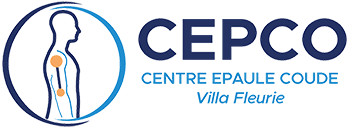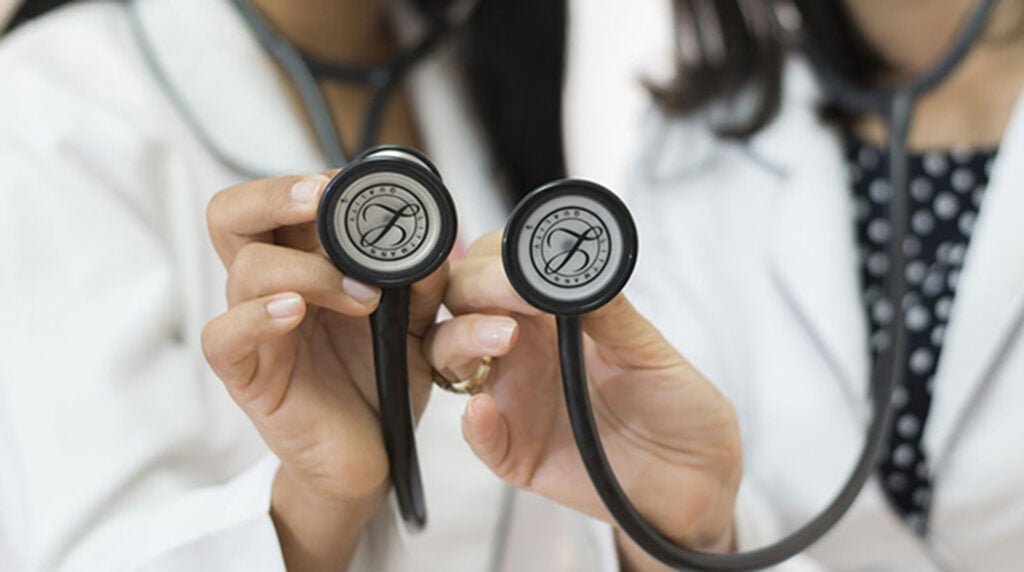Drs Grégory Cunningham and Jesus Arroyo
Administrative controls, price drops, cascading burn-outs. More and more, everywhere, we hear that being a doctor has become harder and less enticing for prospects. Have the doctors lost faith? Cross interview with two medical experts with different opinions on the future of medicine. Dr. Grégory Cunningham, a young specialist doctor, and Dr. Jesus Arroyo, a generalist who has witnessed more than one reform.
How and why did you become a doctor?
Dr Jesus Arroyo (JA) – I think it’s hard to know why we make certain choices when we are young. But for medicine, I think there was this intrinsic desire to help at the beginning, to become a sort of “Saint-Bernard”! My personal journey was original. I started in the Basque Country and it was the unstable political situation that prevailed then that brought me to Switzerland. First, I was a nurse at the Prangins Psychiatric Hospital and then at the Psychiatric Hospital of Bel-Air. I then continued my medical studies in Geneva. This initial training as a nurse was central in my conception of the profession: it taught me humanity in my relationship with patients and in the management of healthcare teams, as well as respect for each person’s work.

Dr. Grégory Cunningham (GC): My parents are both doctors, but I was predestined for a career as a pianist. But during my last teenage years, I developed a special fascination for the functioning of the human body. So I started my medical studies. It was only by studying and practicing medicine that it became a vocation, particularly orthopedic surgery with a special emphasis on shoulder surgery: I found it to be a practical and creative field, both in applicative aspect of the profession and through scientific research.
It is often said that young people are less motivated than before … What do you think? Have the profession and the people who practice it changed?
GC – Socrates was already complaining about the lack of motivation of the new generation more than 2000 years ago, and the world is still functioning. I see, however, that there is a certain demotivation for medicine in the newer generation, because the job of the young intern becomes more and more non-rewarding. Theoretically, overtime work is more controlled and better compensated, but in practice, this remains questionable. Restraints in physicians’ autonomy and administrative burden are increasing, even though paradoxically, there are more and more administrators. What is certain is, this creates a gap between the doctor and the patient, which widens more and more. Based on my experience, I can estimate that an intern (in any case) spends 70% of his time doing administrative work in various forms. Administrative procedures are also becoming a real burden for research. Submitting a simple study protocol sometimes becomes longer and more difficult than carrying out the study itself.
JA – I also think that medicine has become more bureaucratic. We live in a society that is obsessed with the desire for certainty and insurance of all kinds. You have to fill out forms all the time, hide behind a computer rather than spending time with your patient. It’s a shame because the doctor-patient relationship is the basis of medicine. But it is difficult to fight against this societal evolution that we see everywhere. The world becomes managerial, and so does medicine: we treat patients as a team, we delegate tasks and, consequently, the responsibilities of each physician are diluted. The problem is that teamwork has become a goal in itself rather than a means to an end.
How do you see the doctor-patient relationship in your daily practice?
GC – Today, patients access to medical information has been extremely facilitated by the media, especially the internet. It’s fascinating to see what patients know about their health and how often that knowledge makes communication easier. More and more patients come to me with specific questions about the type of equipment that will be implanted or the technique I will use to repair their rotator cuff, etc. Some have even viewed online videos of the procedure. Of course, the phenomenon can be double-edged, putting us in a position of being just a simple service provider. Patients can promote medical tourism, by consulting multiple doctors until they get the treatment they consider the most fitting for them. It’s up to us to know where and when to set boundaries. But I am rather optimistic about this paradigm shift in the doctor-patient relationship.
JA – For me, I find that patients have become much more demanding! Nowadays, we have to respond to patients via e-mail (I have three email addresses …), by telephone and WhatsApp, which you take with you even when you go to the bathroom! The point is not to deny that technology has brought real progress, including the possibilities of continuing education for doctors. But it also comes with its share of problems. It is supposed to empower the patient, to put him at the “center” of the decision-making process, as it is expected based on today’s theory of patient care. What a laudable intention. Before, the patient was the point of “interest”. The idea of making him the “center” of care came later. But with the excessive demands of “teamwork” and its constraints, the direct relationship with the patient often often becomes secondary.
Are you concerned about the future of medicine?
GC – I think there is something to be worried about. The liberal nature of our profession is increasingly under threat: We are in a period of budget cuts at all levels, and doctors are easy targets because they are too busy and disunited to effectively defend their common interests, unlike drug or insurance companies. If we want to remain interlocutors on an equal footing with the insurance lobby, clinics and hospitals – not to mention an increasingly interventionist federal council – we have no choice: we must be united.
JA – I’m not worried, but the future of medicine will be the one that doctors will want it to be! They are the one who hold this power, based on all the polls done on networks. But for this to work, we must agree to work together and fund professional structures to defend ourselves politically. One of the things that worry me the most is the fact that there is unhealthy competition between doctors today. When the medical corps is attacked, everyone goes up to the front, certainly. But beyond these brilliant collective actions, the profession lacks cohesion and engages in a fratricidal war between “egos”, magnified by the question of salaries of each specialist. Physicians must realize that their strength can only be exercised by putting their energies together. They are the ones who hold the key to reshape their profession and impose their vision of a professional and fair medical practice for all. The current evolution of our profession is certainly complex but I never regretted being a doctor.

